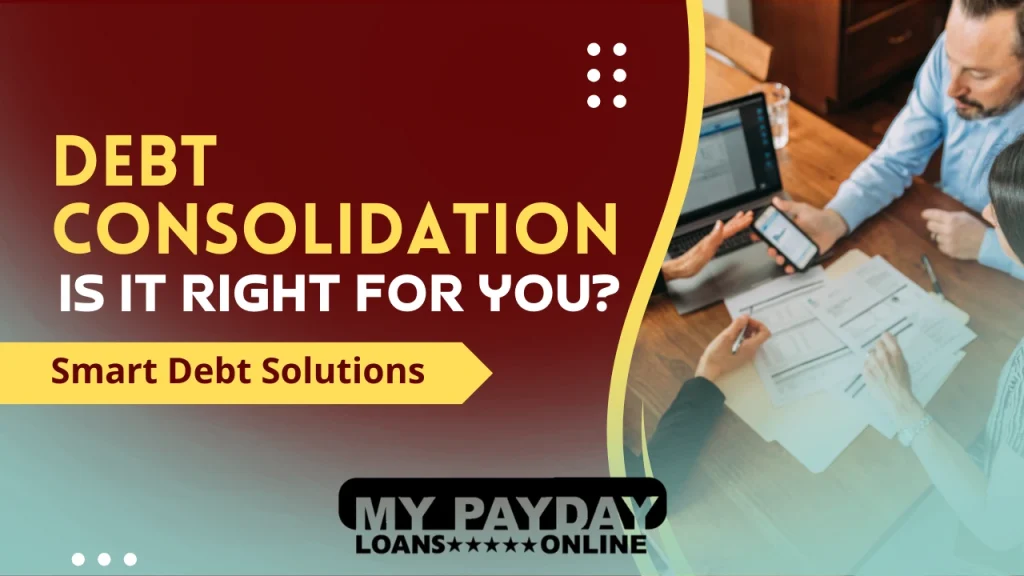Credit card debt usually happens when your credit consumption patterns push you towards late or missed payments. Either way, to manage multiple monthly payments you might think of combining them into a single loan.
People do it all the time, but is it a good choice in the long term? Debt consolidation loans may offer you the relief you’re looking for, but it is best to know the stakes.
We will discuss whether taking loans to pay off credit card debt is a good idea and other alternatives that can be considered.
Why take a loan to pay debt?
Being stuck in credit card debt is, no doubt, a vicious cycle. When you’re constantly dealing with interest rates, late fees, and exponential balances, it becomes harder to invest in other financial goals.
Consolidating multiple credit card bills into a single loan sounds like a quick fix. A personal loan for credit card debt offers lower APRs compared to credit cards, especially when your credit score is great.
So why not? In the longer run it might look like being able to save money and simplify payments in only one monthly installment.
Check out personal loans without collateral requirements here.
Pros of using a loan to pay off credit card debt
One of the core advantages of taking a credit card debt consolidation loan is lower interest rates. If you previously struggled with the interest compounding on your credit card bills, taking a loan will help.
Another obvious reason is only one monthly payment to worry about. It becomes overly simple to fit into your budget and plan expenses and savings accordingly.
Lastly, the fluctuating interest rate due to missed payments can be made more predictable by opting for a personal installment loan.
Cons of taking a loan to pay off credit card debt
If you’re able to secure good terms (lower APRs, flexible repayment, no prepayment penalties) they’re the best option to consolidate credit card debt.
However, most lenders won’t approve you if your credit score is poor. Since you’re already in debt, you have to watch out for added pressure. There are also penalties on early and late payments which must be considered.
Also, the terms are greatly varying. Some online lenders will offer you longer repayment periods, and that will only cause more money to go out of your pocket because of the interest.
My Payday Loans Online offers no-credit-check installment loans at lower interest rates. Repayment ranges from 3-72 months, offering some flexibility. You can fill up the online loan application to get approved instantly.
Are there better alternatives?
Taking a loan isn’t the only option for getting rid of credit card debt. You can try these:
- Debt Snowball Method
The debt snowball technique is a great way to consolidate credit card debt in portions. Start by paying off the smallest debts first, while still making the minimum payments for others.
Once you have cleared the smaller debts, move on to the next smallest. This will keep you motivated, allowing room for celebrating small wins. Soon, your debt may be cleared no matter how huge it looked at the beginning. The key is planning smartly.
- Debt Avalanche Method
This one is similar to snowballing but you’re supposed to focus on paying debt with the highest interest rates first. In the longer run, this will help you save money because paying more interest means overall losing more money.
- Debt Management Plans (DMP)
A DMP provider may help you negotiate lower interest rates with your creditor. Through an agreement, you may be able to consolidate debts into a single loan as well.
- Credit Card Debt Relief Programs
Credit card debt in America has skyrocketed in recent years. It was reported to have reached $1.17 trillion in 2024! The government offers credit card debt relief programs to help consumers get back on track. You can opt for debt forgiveness or as a last resort file bankruptcy.
Anybody who’s excessively struggling to meet the payments qualifies for these.
- Balance Transfer Credit Cards
Balance transfer credit cards offer 0% APRs for 12-18 months. You can pay the balance off before the introductory period ends to cut down on the interest at least.
When should you consider loans to pay off debt?
Whether or not to take a loan depends on your financial situation and the amount of debt you’re dealing with. Here’s when you can and should opt for a loan:
- You have a credit card with higher interest rates.
- You have a clear plan to avoid racking up new credit card debt.
- Loan terms look comfortable to you and loan payments are affordable.
- You prefer single monthly payments over multiple debts.
When should you avoid a loan?
- You’re unable to qualify for favorable loan terms.
- Your debt is too high, and it is unrealistic to expect personal loans to cover it.
Final Thoughts
Paying off credit card debt is no small task. It requires patience and consistent payments to create a better financial future for yourself. Taking a loan to pay off debt will be a good option if you’re getting fair APRs and favorable loan terms. If not, they might not be the way to go in your specific situation. Stick to the other alternatives we mentioned in this article, and slowly you’ll get there. If you’ve decided to opt for a financial product, make sure that you’re borrowing only from trusted sources (like My Payday Loans Online). Financial freedom is possible, and with the right mindset and tools you will get there.
Frequently Asked Questions (FAQs)
What is the best way to pay off credit card debt?
Budgeting, expense management, debt consolidation loans (with fair terms), debt avalanches, and debt snowballing are by far the best methods to pay credit card debt.
Will consolidating credit card debt with a loan work?
It can work when you’re provided with affordable loan terms. When your credit score is fairly okay, you may opt for these loans to avail lower interest rates and flexible repayment terms.


